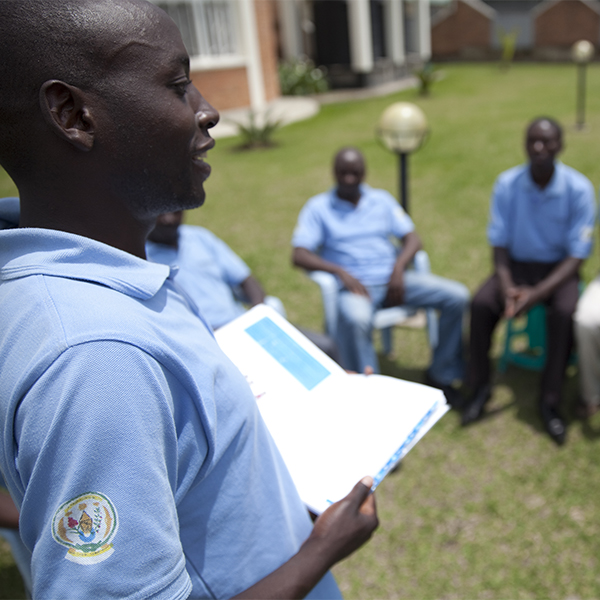
As the Managing Director of Women Effect, Simi Shah talks to people doing amazing things in the world every day. This interview is the first in a series of conversations which we hope you’ll find as inspiring and thought provoking as we do.
Originally posted on the Women Effect blog.
In an interesting twist, first up are men and boys.
Simi met with Gary Barker, Founder and CEO of Equimundo, during his recent trip to London. Equimundo has offices in Brazil, DR Congo and the US, and works globally to promote gender equality and prevent violence by engaging men and boys in partnership women and girls. They have six focus areas: fatherhood and caregiving, violence prevention, economic justice, conflict and security, youth and equality and research in action.
Simi Shah (SS): Welcome to London! I am so glad to have the opportunity to talk with you because many of our community members view investment in men and boys as an integral part of achieving a positive effect for women and girls. What brings you to London this week?
Gary Barker (GB): I’ve been working with a multinational consumer products company based in the UK on their advertising aimed at young men so that the images and messages allow for multiple versions of masculinity, breaking the box so to speak of what it means to be men.
SS: Fascinating. Do you often work with corporations on their marketing campaigns?
GB: It’s not a primary focus but we have engaged in this work when we find an interesting corporate partner. We know that it’s important for the healthy identity development of men and boys to know there’s more than one way ‘to be a man’ and this is an opportunity to send that message to a very wide audience. I think more corporations are also figuring that out.
SS: How a company portrays men and male identity while promoting their product or service is an interesting lens for an investor to use. Let’s think about the other types of questions an investor could be asking if they want to apply a men and boys lens during diligence on an opportunity.
GB: I would ask if the employment policies and practices are a) allowing men to participate as equal partners in the care of their families and b) supporting gender equality and the human rights of both men and women? These could include but are not limited to sexual harassment, flexible working conditions and parental leave. Also, are men being consulted on programs, initiatives or interventions that are targeted at them? Are men being appropriately engaged to support women’s involvement at all levels in a company, from its management to its consumers, to its involvement efforts to empower women economically?
SS: These are great. I’d like to work together in upgrading our current tools to incorporate a full set. If our members wanted to ‘get smart’ on these issues so that they’d be in a better position to ask these kinds of questions, what would they read first?
GB: I would suggest starting with the State of the World’s Fathers report, which is the first of its kind. It’s very data rich for people who want the level of detail but the chapter summaries are well written for those who want an overview. It provides a blueprint of what we need to achieve full equality for women and men when it comes to raising our children, from working with boys and girls early on to flexible work policies. And then catch one of the MenCare films – short videos from around the world about men’s involvement in their families.
SS: I know a primary focus for Equimundo is the implementation and evaluation of targeted interventions, can you tell me about one you’re excited about?
GB: Our work in transforming gender roles amongst new and expectant fathers and mothers in four districts in Rwanda by involving them in maternal and child health is one of many I could tell you about. In that project, we reach men with father training, encouraging them to come to prenatal visits, be present at the birth of their child and be equal partners in caring for their young children. We’ve just carried out a rigorous impact evaluation of this. Women reported a dramatic decrease in [domestic] violence and said [the men] were doing much more of the care work than before. We have other programs to address the prevention of harm to women but it’s equally important to offer men tangible experience of the economic and personal benefits that can accrue when they actively participate in the care of the family. It’s truly radical and transforming work.
SS: It must be rewarding to see it in action. Before your next meeting, one last question: whose work do you admire?
GB: Sonke Gender Justice in South Africa does amazing work in community-based approaches to changing these norms – related to violence, and to getting men to come for HIV testing and services. Raising Voices in Uganda is another – using a community-wide approach to norm change related to violence against women. Tostan’s work in Senegal is also achieving some dramatic results in changing community norms related to FGM. And I’d also give a shout-out to HarassMap in Egypt and Abaad in Lebanon for their brave work on ending violence against women.
